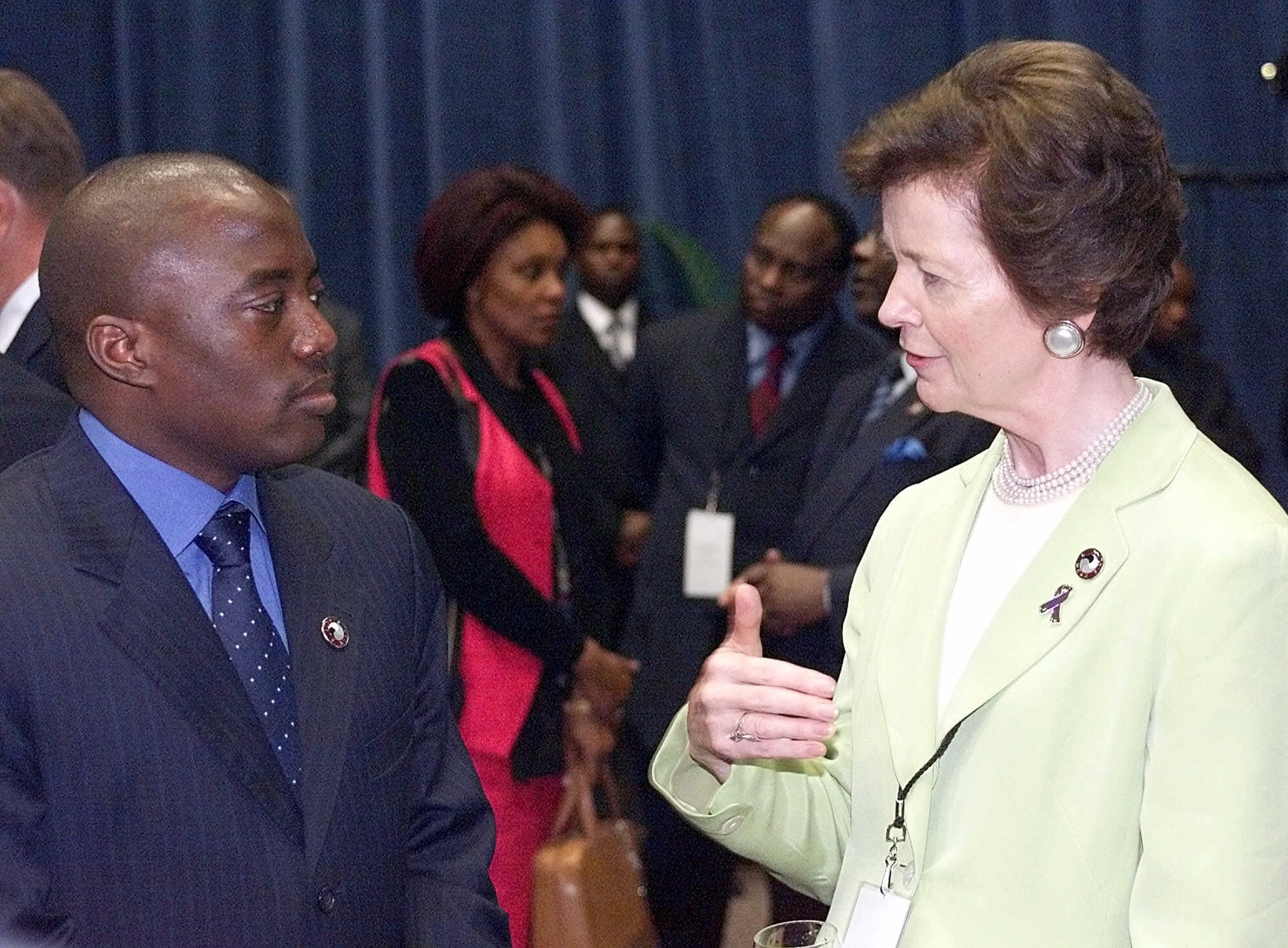
Executive summary
Peace has a better chance to take root in eastern Congo now than at any time since the cycle of conflict began in the early to mid-1990s. Building on the Kampala-based talks with the M23 rebel group, which are too narrow to achieve peace and stability in the east, the African Union and U.N. Special Envoy Mary Robinson have a window to establish a more comprehensive and inclusive peace process that addresses the core drivers of violence in the Democratic Republic of the Congo, or DRC. This window, however, will not remain open indefinitely.
A number of factors are prying this window open. First, donor governments and the World Bank responded to the latest conflict cycle by suspending or altering aid to neighboring Rwanda for alleged cross-border support for the M23 rebel group that captured the city of Goma in November 2012. Second, in response to a growing consumer movement for conflict-free products, U.S. congressional legislation and multinational corporate reforms requiring transparency in the supply chains of minerals originating in Africa’s Great Lakes region have made it much more difficult for armed groups to generate revenue from three of the four conflict minerals. Third, the International Monetary Fund and the Extractive Industries Transparency Initiative have suspended work in Congo until the government enacts transparency reforms. Together, this pressure has helped reduce external support to M23 and weaken it with internal splits, contributed to the surrender of M23 warlord Bosco Ntaganda, and placed heavy financial pressure on armed groups. It is also helping motivate Congo and Rwanda to participate more constructively in peace and reform processes.
The diplomatic framework for a more comprehensive and inclusive peace process originated with the signing of the Peace, Security and Cooperation Framework for the Democratic Republic of the Congo and the Region by 11 African heads of state and U.N. Secretary-General Ban Ki-moon in February and the appointment of Robinson as U.N. special envoy to the region. While the framework commits Congo and its neighbors to key reforms, it is only the beginning. If the follow-up involves only a periodic box-ticking exercise by regional heads of state, violence will resume as it has after other inadequate peace deals.
There will be three keys to unlocking a successful peace process that stems from the 11+4 Framework. First, Special Envoy Robinson and the international community must provide a forum and incentives for the “Three K’s”—Kigali, Kampala, and Kinshasa—to negotiate ways to legitimately cooperate on economic, security, and refugee issues. The framework commits Congo and its neighbors to deepening regional economic integration and respecting legitimate regional security interests. To date all three countries have been competing for control over the illicit extraction of resources through support to armed groups, but each stands to benefit significantly more from a responsible economic trade with greater international investment—if they can negotiate outstanding issues such as investment frameworks for minerals and anti-smuggling mechanisms. Building on lessons from Northern Ireland and Central America,investors and donors should provide incentives for cooperation by exploring the expansion of investments in conflict-free natural resources in the region. The countries should also agree on a comprehensive security strategy to deal with illegal militias in order to support the intervention brigade agreed to by the U.N. Security Council.
Second, Special Envoy Robinson and a new special representative of the secretary-general in Congo will need to work closely with the Congolese government and civil society to enact real institutional reforms that allow for democratic transformation in Congo. This builds on Congo’s commitment in the framework to undertake reform on governance, decentralization, and security-sector reform issues. To fulfill this mandate, the government should show good faith in reform by holding local elections and then engaging in an inclusive institutional reform process that includes proposals from the Congolese government, political parties, and civil society. Following Congolese President Joseph Kabila’s announcement to initiate a national dialogue, there is a need for an impartially facilitated Congolese national dialogue that respects the constitution and allows civil society, government, key armed groups, and political parties to discuss reform proposals. This should culminate in the establishment of electoral processes and genuine reforms that reflect the will of the Congolese people.
Third, a credible peace process must demand repercussions for those who have committed mass atrocities. Rather than continuing to allow human-rights abusers to gain positions of power in the government or the military, the peace process should ensure that regional governments cooperate to bring to justice those who are responsible for war crimes and crimes against humanity. A possible agreement in the current Kampala-based talks that gives amnesty to M23 commanders and integrates them into Congo’s army without any human-rights vetting is troubling because it could result in the same mistakes of past agreements that allowed impunity for serious crimes and led to renewed conflict. Any deal arising from the current process must be different. It cannot simply forgive those commanders most responsible for atrocities.

